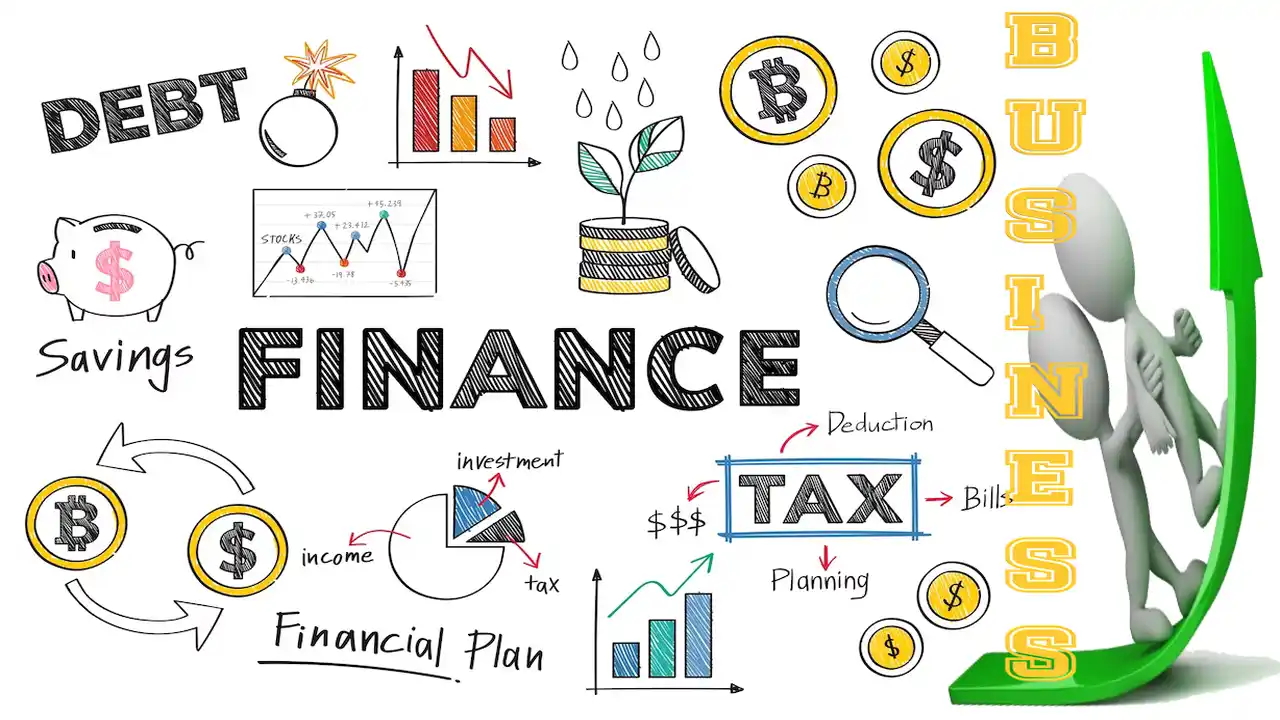Businesses with high profits can quickly and readily entice additional investors. This paves the way for those companies to prosper and grow. When returns decline as a result of either increased supply or decreased demand, prices will fall as well. This tells buyers they shouldn’t put as much money into that sector. To learn more, take a look at these advantages of capital market.
Sometimes, stock exchanges are the best analogy for financial markets. Companies can sell both equity (shares) and debt (bonds) on these stock exchanges. Bondholders lend money to institutions for a certain length of time in return for interest payments. People who own shares in publicly traded companies are also the owners of those companies; when shareholders sell their shares, the money goes back into the company.
Advantages of Capital Market
The capital market, in the common understanding, is a venue for the buying and selling of stocks, bonds, and other financial products. Those responsible for making it happen are the various groups and individuals engaged, such as vendors and consumers. Through the financial markets, savings from individuals are channeled into institutions. These entities then use the funds toward productive endeavors. Those looking to invest in this market typically do so with the long term in mind. Here is an overview of advantages of capital market with a detailed explanation for your better understanding.
User-friendly Design
A share of the pie is easier to get by than it used to be. You can now use the internet to trade assets on the stock market, all thanks to technical improvements. These assets can take several forms, including bonds, loans, equities, and derivatives. Investors have complete flexibility with a trading platform, allowing them to execute deals at their convenience. Many investors have found that these online share purchasing tools have made their experiences better. Consequently, investing is much easier and less complicated.
Outside Investment
Obtaining foreign capital through bonds and other assets is another major perk. To encourage more Foreign Direct Investment (FDI) into the nation, authorities have removed a number of administrative hurdles. Foreign investment and technology have poured in as a result. The secondary market allows investors to sell their assets and turn the money they made into cold, hard cash.
Advice on Technical Matters
The stock exchange is a marketplace where investors can easily purchase and sell shares. It is easier to market assets on the stock exchange because of the increased liquidity it provides. Entrepreneurs can get advice on how to do feasibility studies, find development opportunities, and teach project management skills from capital markets, which helps them close the huge technical gap.
More Profits
Direct market investment has a better possibility of yielding a profit than other investment options like fixed deposits and provident funds. Those who put their money into this could make a killing. Maximizing your returns on investment (ROI) in the stock market is possible with the help of certain tactics and studies. After you finish your research, you will know how to spot stock market trends and patterns. Making money becomes more likely when you do this.
Get Well Soon Units
By stepping in at the right moment, financial institutions may help potentially sick units recuperate and get back to work. As a hub for trading, the stock exchange carries goods and services to manufacturing. This makes individuals more motivated to put their money where their mouth is and create a profit. Because of this, investing in company stock becomes easier, which benefits the country’s industrial sector and economic development.
Underdeveloped Regions Advancement
Financing can be secured through financial markets, enabling projects in economically challenged areas to expand. Rural and traditionally underdeveloped areas can also access long-term financing for their development projects. A range of services are provided, including underwriting facilities, aid with marketing businesses, expert knowledge, equity capital involvement, and long- and medium-term loans to business owners.
Rules and Regulations
The Indian stock market and its ups and downs are overseen by the Securities and Exchange Board of India (SEBI). Protecting investors’ interests is also its responsibility. It prevents accidents by making sure investments and transactions are done honestly. This allows for a regulatory framework to ensure that investors can put their money into a variety of financial products.
Making Deals Easier
The capital market’s key benefit is that it lets savers and spenders trade with one another. People that save money include individuals, banks, and those with a lot of wealth. Companies that have consistent funding needs are considered spenders. Customers have the opportunity to save money while also earning it back through capital gains, interest, and profits. Companies can also use this capital to grow and improve. You can find people who are very wealthy but have no prospects, and you can also find people who are very successful but have very little money. These two factions would do well to work together in the stock market. Thus, the capital market mediates between the two parties, to their mutual advantage.
Availability of Funds
Some markets, like the real estate market, are notoriously tough to break into or out of. In contrast, capital markets are highly flexible. Buyers are able to deposit funds into the market and then remove them as necessary. This is also not the case in the real estate industry. Buying and selling assets on the capital market is as easy as clicking a mouse, so you’ll never run out of money. Buyers and businesses are thus more inclined to put their faith in the capital market compared to other markets.
Flexible Abilities
Its adaptability is a major strength of the capital market. Based on your research and available finances, you have a wide range of options when it comes to financial instruments, such as stocks, bonds, mutual funds, derivatives, and more, to choose from when you wish to invest. By enabling them to diversify their holdings, this flexibility further helps buyers in decreasing the risks of their investments. not included
FAQ
Just how Crucial is the Capital Market to the Economy?
For the economy to thrive and remain stable, capital markets are essential for a number of reasons, including the distribution of risk and the raising of funds. A whopping 72 percent of the US economy’s action takes place in the capital markets. Funding can be secured in the form of loans and equity by non-financial enterprises through these venues.
How can One Identify a Solid Financial Market?
One aspect of a well-functioning capital market is the rapidity with which stock prices react to new information. That is why all the data we have about securities is used to determine their current values.
In what Ways does the Capital Market Function?
There are two separate purposes served by the stock market. Businesses in need of funding can initially take advantage of their matching service, which connects them with companies that have available funds. On top of that, they facilitate a secondary market wherein assets can be traded at market values. Perhaps even more so, this.
Final Words
A lot of money is available, as anyone familiar with the stock market can tell you. There is a straightforward method to turn capital market assets into cold, hard cash. There will always be a large number of people who want to buy these things. Land and other non-monetary assets are not always easy to turn into cold, hard cash. It could be a few months before some buyers see a profit from their real estate investment. not included The advantages of capital market has a strong role to play in the whole process which you should be aware of it while conducting various business activities. Read more about role of capital market in economic development to broaden your knowledge base.






